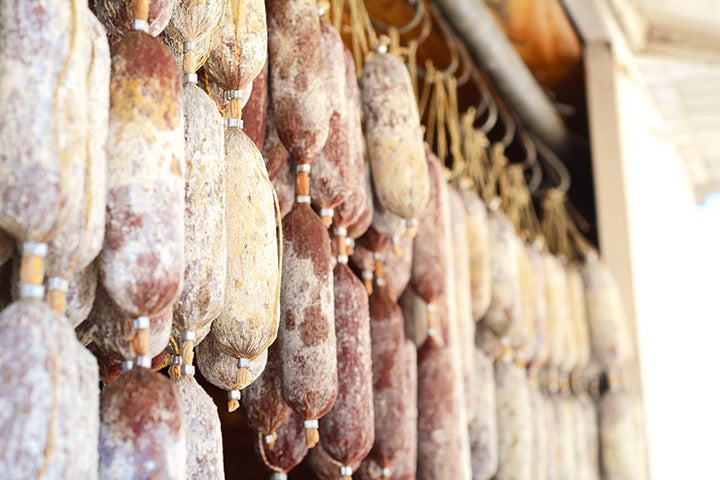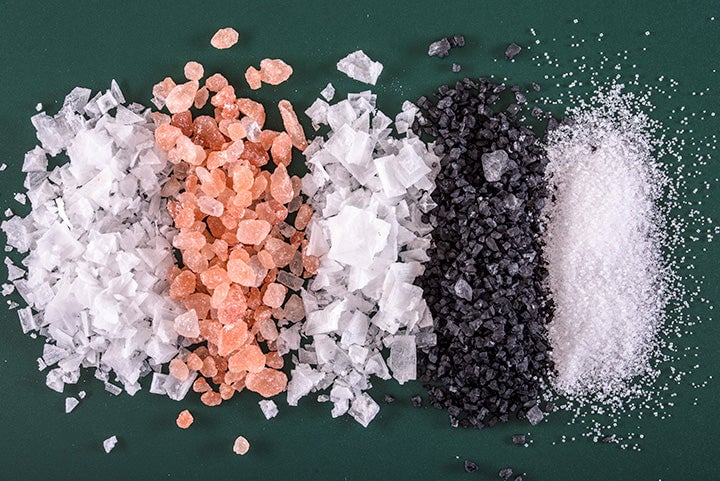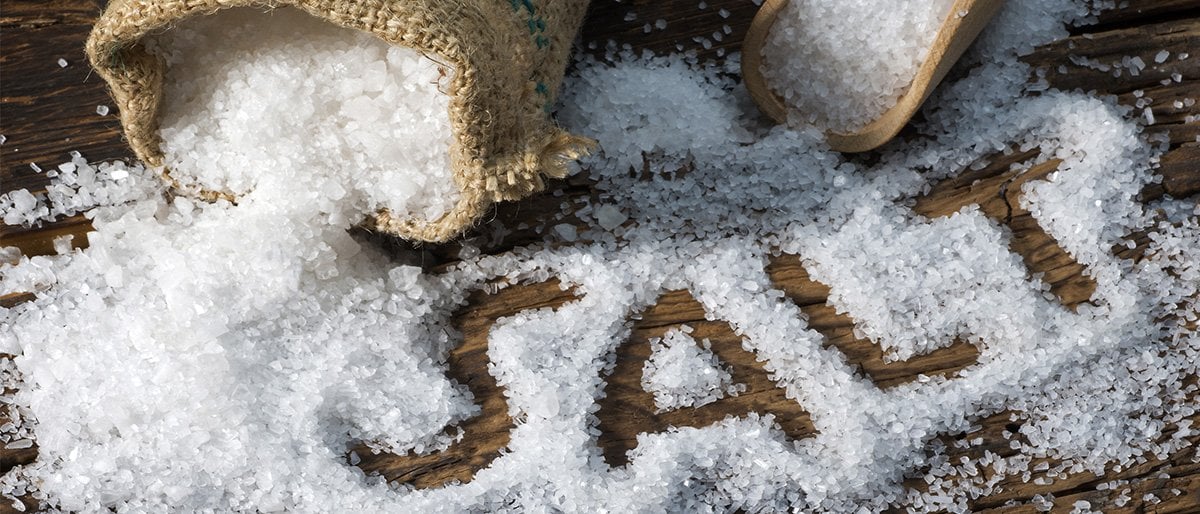All About Salt and Preparedness
Salt has been valuable since the dawn of civilization. Many are familiar with the phrase "worth his salt." This has origins in the ancient slave trade, where slaves would be traded for this commodity.
Ancient Roman soldiers were also paid in salt, called a salarium, which is the root of our word "salary."
Salt was also critical to the settling of America. Before refrigeration, salt was one of the few ways to preserve food. In fact, American traditions like southern country ham were developed during those early times in this country and are still used today.
Of course, before modern refrigeration, salt (and lots of it) was necessary to keep foods from spoiling. In a situation like a power grid failure, salt will become incredibly valuable again.
There are so many uses for salt it would be impossible to list them all here, but here's a pinch (pun intended) to get you started:
- Food preservation - pickling/fermenting vegetables and curing meat
- Use with water to charge NiMh batteries on a grid-down device like the Greenivative Power Cell.
- Soothes sore throats as a gargle
- Clean greasy pans without dish soap (coarse salt recommended)
- Remove pinfeathers from a chicken by rubbing its skin with salt
- Kill weeds - spread salt around roots of weeds
- Melt ice (coarse or rock salt)
- Mix with baby oil to exfoliate skin
- Make an antiseptic saline solution (1 tsp salt: 1 cup water)
- Put out grease or electrical fires (water is not safe in these scenarios)

My recommendation is to stock up on a variety of salts. Sea salts. Iodized salts. Rock salt. This gives you the versatility you need to handle the largest number of tasks you could be presented with.
Storing them away from moisture, humidity and light will keep it fresh, although it has an incredibly long shelf life even in poor conditions. If you want to be truly careful, you can seal it in Mylar packaging with oxygen absorbers, as we do with our freeze-dried Patriot Pantry food.
Salt gets a bad rap
Many of us have been conditioned to believe that salt is unhealthy.
Quick disclaimer: I am not a doctor and all individual health concerns should be discussed with those who are qualified to speak to your own needs.

But we all know that for decades, "low-sodium" diets and products have been marketed as healthy.
Like I said, it's a form of conditioning. Our brains want to think in binary terms, so if low salt is good for us, high salt is bad, right?
Well, it depends.
Salt is essential to life. It helps regulate our blood volume. It carries nutrients in our blood to our organs and tissues. It helps our muscles contract and nerves to fire with electricity. This last fact is why salt is considered an "electrolyte." These same electrolytes in our blood perform the same function as electrolytes found in batteries.
So, even if low-sodium might be good for some, a zero-sodium diet would be fatal. Most foods, even fresh produce have some sodium, so it's nearly impossible to avoid.
Further, there is no one-size-fits-all approach to sodium in our diets. The same is true for our preparedness journeys. If your personal sodium needs are a concern of yours, I suggest speaking with a nutritionist who can do some tests and recommend a complete plan for you.
We also need different amounts of sodium based on what is going on in our lives. Physical exertion, periods of intense focus, and stress can increase our demands for sodium and other nutrients. Many athletes worry about getting enough sodium – especially endurance athletes. Survival situations have similar demands – so consider this when planning nutrition in your preparedness plan.
So, why worry about salt? Well, most of the salt we get is not from the shakers on our tables, but from processed foods.
Processed foods often contain many concerns, not just excessive sodium. Preservatives, GMOs, fillers like sawdust and more. Perhaps the issue isn't sodium alone, but products that shouldn't even be considered food.
Let's take a real-world example. Last time I was in the grocery store, I took a look at the soup aisle. I picked the most popular soup of my childhood off the shelf.
One serving of this soup had 39% of the USDA's Recommended Daily Allowance (RDA). That "serving" delivers a measly 60 calories. Adults can easily eat a whole can, of which there are 2.5 servings. That's 97% of the RDA in sodium, while only 150 total calories. This same can of soup claims proudly that it is "low in fat" and cholesterol.
You don't have to be a nutritionist to see that the proportion of salt to calories (and by extension, other vital nutrients) is high and way out of balance.

When we first began developing our Patriot Pantry line of emergency foods, we kept that idea of balance in mind in many of our decisions.
First, our emergency food had to taste great. Salt and other seasonings bring out the flavors in food. Too much and all you taste is seasoning, sure. But none and you feel it's missing something. If someone in your family taught you to cook, this may have been one of the first lessons you internalized.
Second, our emergency food had to be processed as minimally as possible. We use a special method to gently freeze dry Patriot Pantry foods. This preserves the fresh flavor up to 25 years. It also allows us to not overcorrect for flavor loss with extra sodium.
Third, our food kits together had to build a complete nutritional profile. Salt is a part of that profile, along with numerous other nutrients. In an emergency, you may have to be active. If you sweat during this activity, you will have to replace it with water, salt and other electrolytes like potassium. Our Orange Energy Drink Mix was formulated for situations like these.

As a final note, it seems the tide of medical research is turning on sodium.
The New York Times reported last fall:
If you're confused about salt, I'm not surprised. There's been a steady back-and-forth on claims that reducing dietary sodium…is crucial to our well-being, countered by claims that following this advice can sometimes be a health hazard.
One of the articles the Times cited was found in the New England Journal of Medicine. They concluded:
Recent studies have raised questions about potential adverse effects associated with low sodium intake on important health outcomes, including cardiovascular disease and death…Taken together, [the multiple studies] highlight the need to collect high-quality evidence on both the risks and benefits of low-sodium diets."
We can see this research may be changing how much salt we are allowed in our diets. The more we find out, the better.
However, we know now that it is necessary, in the right amount. That amount changes based on our own bodies and what kind of stress they're under.
I hope you've found a grain of insight (pun intended) in all this talk about salt.
For some reason, my mouth is watering.
Have a great weekend, friends! Stay alert out there.
In Liberty,
Grant Miller
Preparedness Advisor, My Patriot Supply
P.S. To learn more about self-reliance, follow MPS on Facebook or Twitter.


